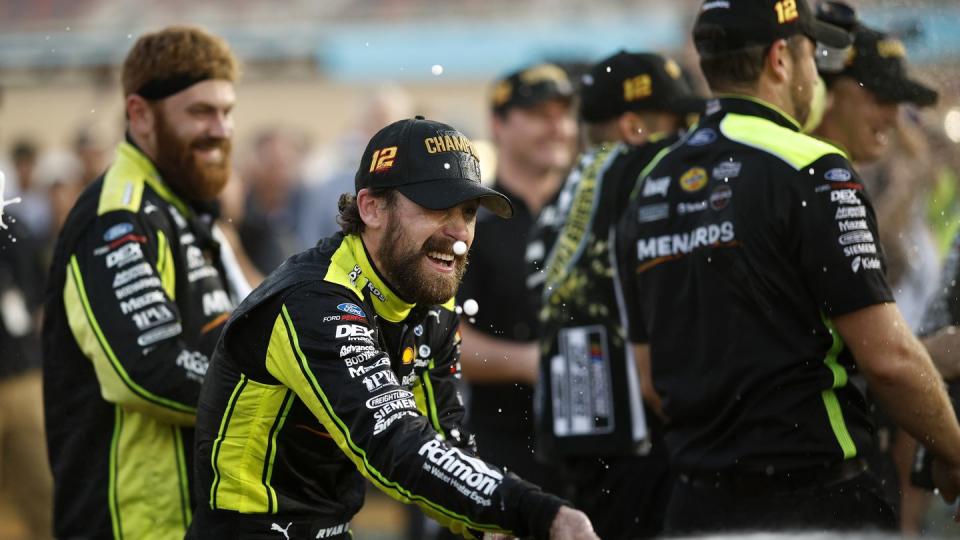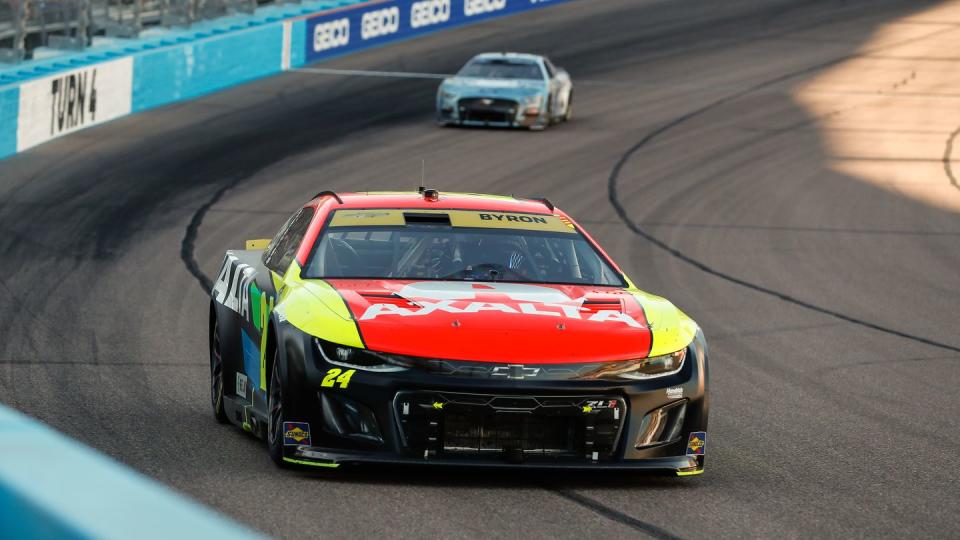NASCAR Cup Drivers Split on Current Playoff Format

A new era began in 2004 when the sanctioning body limited championship eligibility to the top 10 drivers over the closing weeks.
More dramatically, the elimination concept began in 2014, with playoff drivers booted from the field in a series of three rounds, leading to four remaining drivers racing for the title in the final race.
Many tradition-oriented fans view the old season-long points system as a better and fairer way—though maybe less exciting than the current Playoff format—to determine the champion.
For 30 years, NASCAR determined its Cup Series champion based on a point system that more often than not rewarded consistency over victory.
Points were distributed in descending order from first place to last. But one of the great flaws of the system is that it gave the second-place finisher the same number of points as the race winner if the runner-up led the most laps.
Winning a race offered no significant “prize” other than a few more points than others in the top 10.
That system produced more than a few deserving champions across the years, but it also often robbed the final weeks of the season of drama. Drivers locked up the title before the final race.
NASCAR, ever more aware of television ratings and fan interest, eventually decided that posture could not stand. A new era began in 2004 when the sanctioning body limited championship eligibility to the top 10 drivers over the closing weeks. More dramatically, the elimination concept began in 2014, with playoff drivers booted from the field in a series of three rounds, leading to four remaining drivers racing for the title in the final race.
The change nine years ago has put new fire into the final 10 weeks of the season and generally has received positive reviews. There also has been criticism, however, particularly from tradition-oriented fans who view the old season-long system as a better and fairer way to determine the champion.
Drivers generally support the current system, but some raced under some variety of the old setup while advancing through racing and appreciate the idea of rewarding season-long consistency.
This year, Ryan Blaney survived the knockout-style format and the championship despite winning just three races during the 36-race season. Blaney was seeded just 12th out of 16 qualifiers going into the 10-race Playoffs.
“I’m old school in a lot of ways,” said Chris Buescher, who is approaching his ninth full season in Cup and has never raced at the Cup level under the old system. He opposes the proposal some drivers lean toward—using the results of the final three races of the season to determine a champion—instead of the current emphasis on only the final race.
“If you’re going to take three races and add up points from those, I’d say just go back and add up points from the (season-opening) Daytona 500,” he said. “Now you come down to one race, and you say this is the one that matters. It’s tough for me to say that’s the best way to do it.
“I don’t know of a solution to really make it feel like it’s more fair or more appropriate or a better representation of a season. That’s probably not the way I should answer that, but I’m very traditional on that side of things.”
Although some drivers don’t necessarily fully endorse the current system, most say they understand the need to create a landscape for the possibility of more dramatic races and edge-of-your-seat finishes.
“I think for the excitement part of it—if you’re looking for that, what we have now is it,” said former champion Kyle Larson. “Does the right champion always win? I don’t know. You look at F1—Max Verstappen won the championship months before the end of the season (Verstappen clinched with six races remaining in the season and went on to win 19 of 22 races this year in coasting to the F1 championship). That could happen. Then you would have everybody bitching and complaining about that. Everybody is never going to be happy whatever the system is.”

Former champion Kevin Harvick, who retired at the end of this season, said the emphasis on race wins—winners qualify for the playoffs—has been a plus.
“I think what we have now favors winning, and I think that’s important,” Harvick said. “There could be a better balance of not making stuff be weighted toward one race. You could possibly have the playoff system and have it spread across a few more (races).
“In the end, wanting to have that one big moment really hasn’t evolved, in my opinion, into making that last race more viewed. That’s really what it was designed for, to try to have that last race have a massive amount of viewership and attention compared to the others. I haven’t seen that, so I think there could be a different balance with the amount of races and the way the playoffs work compared to what we do now.
“It’s complicated. There’s a cause and effect for so many things.”
Ricky Stenhouse Jr. qualified for the playoffs this season by winning the season-opening Daytona 500. That was easily the highlight of an otherwise mediocre season for Stenhouse, but it earned him a spot in the playoffs. He was booted in the first round and finished 16th in the final standings.
“I won our Xfinity championships (2011 and 2012) under the old system, which, obviously, rewards the whole season,” Stenhouse said. “But I like the playoffs. They’re fun. The rounds of knocking people out—I think it’s exciting. You’ve got to be on your ‘A’ game every time you hit the track to get to the final four. We didn’t do our job in the first round this year and got kicked out. It’s good for the fans.”
Michael McDowell said he prefers a season-long point system, but, he said, “From an entertainment and fan perspective, the current format is way better. In years past, you’d have four or five races to go and you already knew who was going to win the championship. That’s not great for fans and TV and partners (sponsors) and all that.”

 Yahoo Autos
Yahoo Autos 